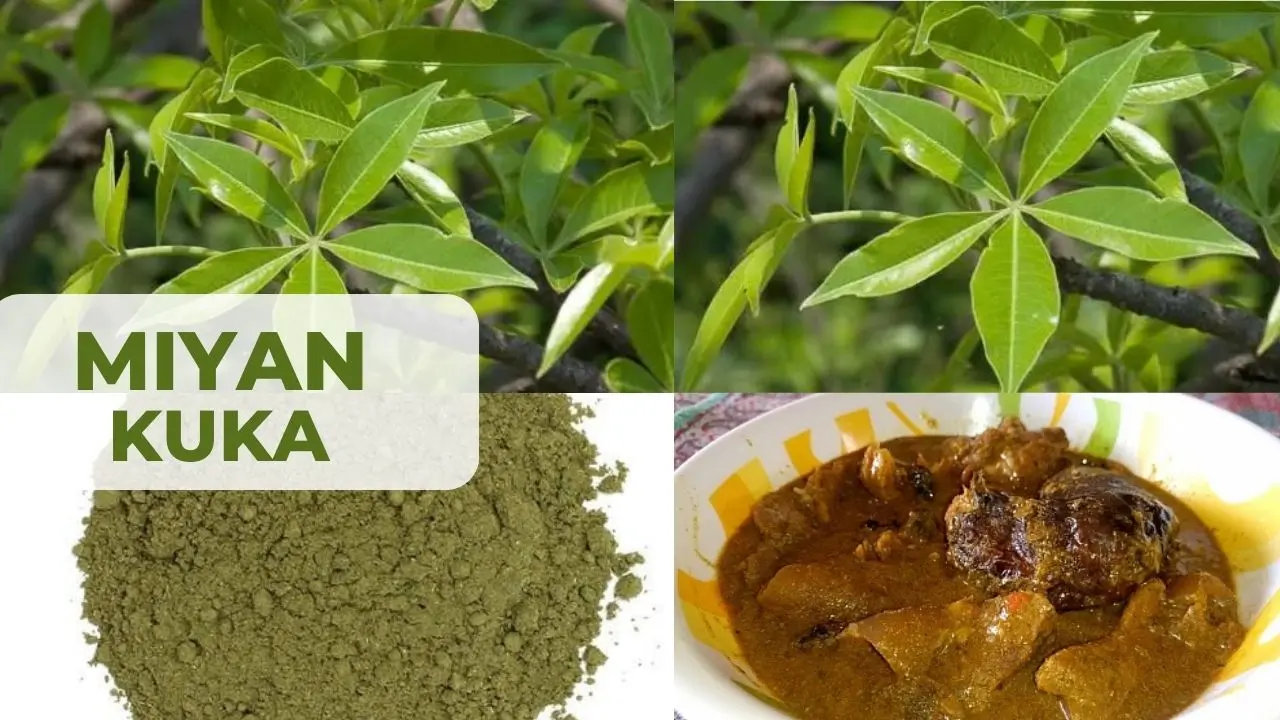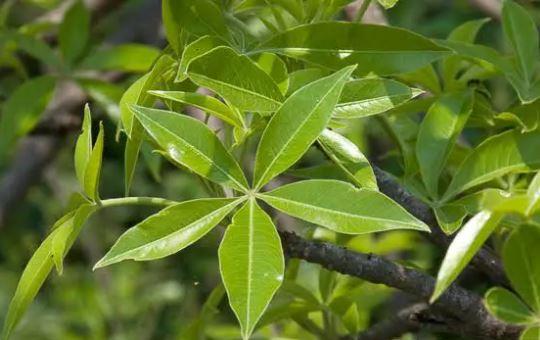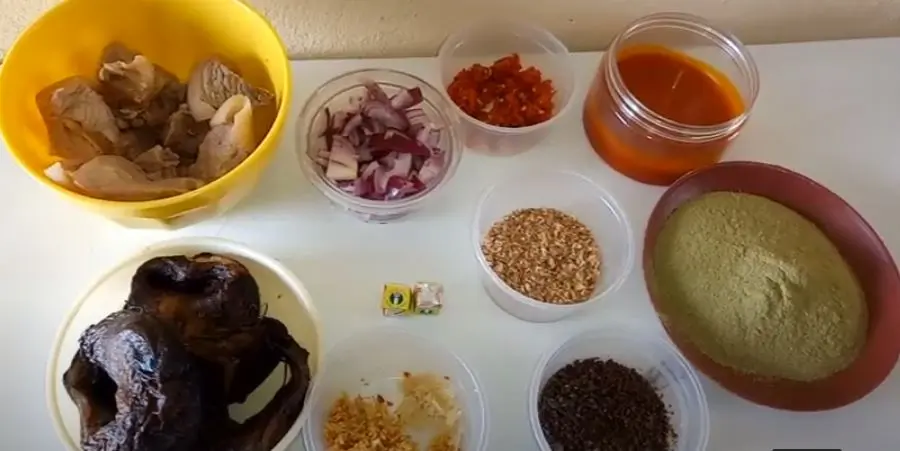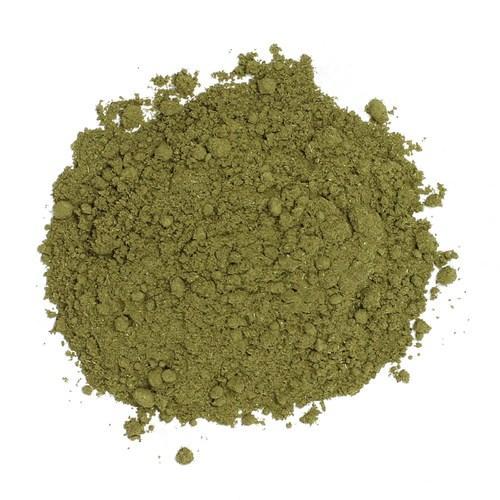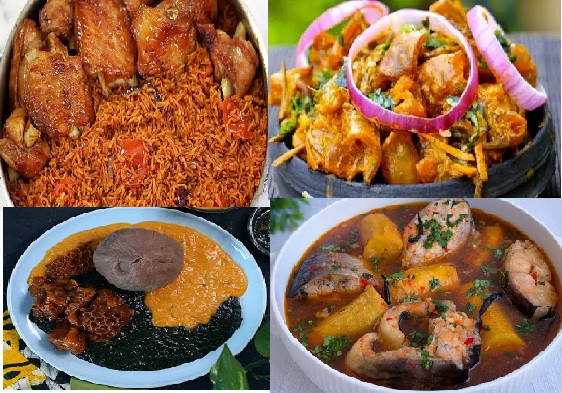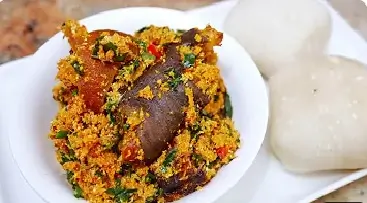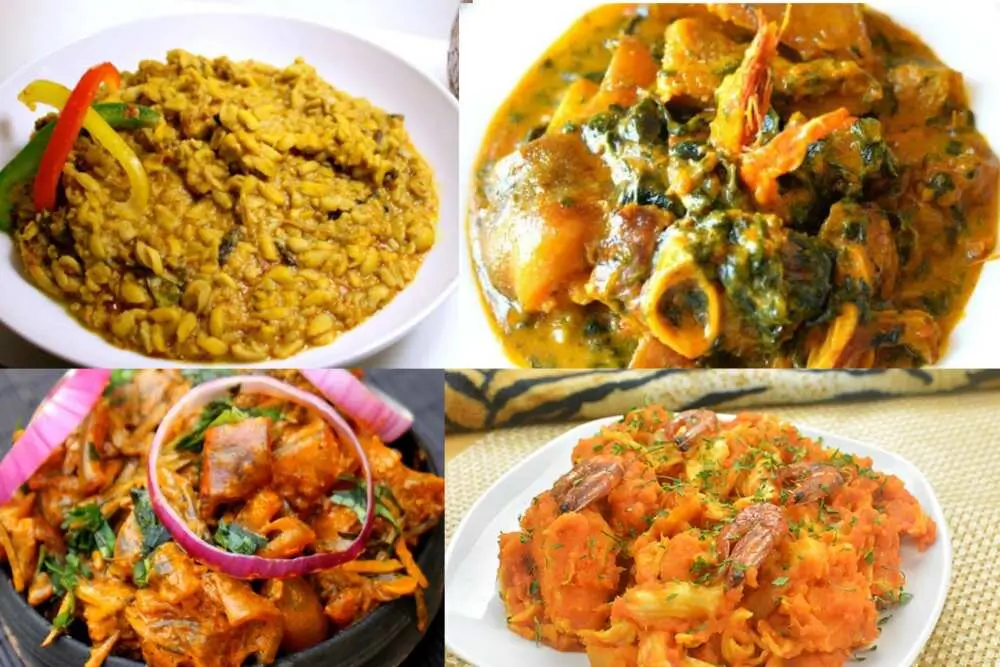
If you are looking for a delicious and nutritious soup that can warm your soul and satisfy your appetite, you should try Miyan Kuka. This is a traditional Hausa soup that is made from dried baobab leaves. It is also known as Luru soup or baobab leaf soup. It is one of the most popular foods loved by the Hausa ethnic group in Nigeria.
Kuka soup has a unique flavour and texture that is hard to resist. It is thick, smooth, and slightly sour. It is usually cooked with palm oil, beef, dried fish, onion, pepper, salt, and seasoning cubes. The soup is not only tasty but also healthy. Baobab leaves are rich in vitamin C, antioxidants, fibre, calcium, iron, and other nutrients. They can help with digestion, immunity, inflammation, anaemia, asthma, and other conditions.
In this article, you will learn more about Miyan Kuka: its history and origin, its benefits for eating it, how to cook it, and how to enjoy it. By the end of this article, you will have a better understanding of this amazing soup and be inspired to try it yourself.
History and Origin of Miyan Kuka (Baobab Leaves Soup)
This soup originated from the Hausa ethnic group, which lives in northern Nigeria and neighbouring countries. The Hausa people have a long history of using baobab trees for various purposes. They use the bark for making rope and cloth; they use the fruit for making drinks; they use the seeds for making oil; they use the roots for making medicine; and they use the leaves for making soup.
The Hausa people call the baobab tree “kukah”. They dry the leaves in the sun until they turn greenish-brown. They then grind them into a fine powder that they call “kuka”. They use this powder to make miyan kuka, which means “Kuka Soup”. It is a staple food for the Hausa people. They eat it almost every day, especially during the dry season when fresh vegetables are scarce.
The soup has spread to other parts of Nigeria and other West African countries over time. It has become a common dish in many households and restaurants. This soup showcases the creativity and adaptability of Nigerian cooks, who use local ingredients to create delicious dishes.
Benefits of Eating Kuka (Baobab Leaves Soup)
Kuka is not only a tasty soup but also a healthy one. It has many benefits for eating it, thanks to the baobab leaves that are the main ingredient. Baobab leaves are rich in vitamin C, antioxidants, fibre, calcium, iron, and other nutrients. They have many health benefits, such as:
- Kuka leaves have a high fibre content that can help with digestion and prevent constipation. They can also help with diarrhoea by absorbing excess water and soothing the intestinal lining.
- The vitamin C content in Kuka helps boost your immunity and fight infections. They can also help with fever and malaria by reducing inflammation and enhancing blood circulation.
- Baobab leaves have a high iron content that can help with anaemia and improve blood quality. They can also help with fatigue and weakness by providing energy and oxygen to the body.
- Kuka has anti-inflammatory and anti-allergic properties that can help with asthma and respiratory problems. They can also help with coughs and sore throats by relieving irritation and congestion.
- The soup has a high calcium content, which can help with bone health and prevent osteoporosis. They can also help with muscle cramps and spasms by relaxing the muscles and nerves.
These are just some of the benefits of eating kuka. There are many more benefits that you can discover by trying this soup yourself.
List of Ingredients for Kuka (Baobab Leaves Soup)
To make Baobab leaves soup, you will need the following ingredients:
- Kuka powder.
- Palm oil
- Beef
- Dried fish or fresh fish
- Onion
- Pepper
- Salt
- Seasoning cubes.
These are the basic ingredients for making Kuka. However, you can also add other ingredients to increase the flavour and texture of the soup.
How to Cook Miyan Kuka (Baobab Leaves Soup)
To cook the soup, you will need to follow these steps:
- Wash and cut the beef into bite-sized pieces. Season with salt and pepper, and set aside.
- Wash and remove the bone from the dried fish. Break into small pieces and set aside.
- Peel and chop the onion, and set aside.
- Wash, blend, or pound the pepper, and set aside.
- In a pot, bring about 4 cups of water to a boil. Add the beef, onion, pepper, seasoning cubes, and half of the palm oil. Cover and cook for about 20 minutes or until the meat is tender.
- Add the dried or stock fish and the remaining palm oil. Stir well and cook for another 10 minutes or until the fish is soft.
- Add the kuka powder gradually and stir with a turning stick. Stir continuously to avoid lumps. Adjust the water level as needed to achieve your desired consistency. Cook for another 10 minutes or until the soup is thick and smooth.
- Add the ugu, spinach, or any other leafy vegetables. Stir well and cook for another 5 minutes or until the vegetables are a bit tender.
- Taste and adjust the seasoning if needed.
Your miyan kuka is ready to serve.
How to Enjoy/Eat Kuka (Baobab Leaves Soup)
The soup is best enjoyed with Tuwo shinkafa, Tuwo Masara, Fufu, Eba, Semo or other swallow foods.
Miyan Kuka and Pregnant Woman
Kuka is very beneficial for pregnant women due to its high nutritional value and ability to prevent constipation. Baobab leaves are rich in vitamin C, antioxidants, fibre, calcium, iron, and other nutrients that are essential for pregnant women and their babies. They can help with digestion, immunity, inflammation, anaemia, asthma, and other conditions that may affect pregnant women.
However, pregnant women should eat the soup the way they eat it and consult their doctors if they have any allergic reactions after eating it. Some of the ingredients in miyan kuka may have side effects or interactions with certain medications or conditions that pregnant women may have. These are some of the possible effects of the ingredients in miyan kuka on pregnant women.
Miyan Kuka Tribe
Miyan kuka is a symbol of the Hausa tribe’s identity and hospitality. The Hausa tribe is one of the largest and most influential ethnic groups in Nigeria and other West African countries. They have a rich and diverse culture that is reflected in their language, religion, music, art, literature, and food.
This is one of the most famous foods of the Hausa tribe. It showcases their culinary skills and their use of local ingredients to make something incredible. It also reflects their history and their interactions with other ethnic groups. This is a dish that can be enjoyed by anyone, regardless of their background or preference.
What Are the Side Effects of Eating Miyan Kuka?
Miyan kuka is generally safe and healthy to eat, but it may have some side effects for some people due to some of its ingredients, such as baobab leaves, palm oil, or pepper. Some of the possible side effects are:
- Allergic reactions: Some people may be allergic to baobab leaves, palm oil, pepper, ginger, garlic, or groundnuts and experience symptoms such as itching, swelling, rash, hives, or difficulty breathing after eating kuka. If you have any known allergies to these ingredients, you should avoid eating kuka or consult your doctor before eating it.
- Stomach upset: Some people may have a sensitive stomach and experience symptoms such as nausea, vomiting, diarrhoea, or indigestion after eating the soup. This may be due to the high acidity, spiciness, or oiliness of the soup. If you have any stomach problems, you should eat kuka moderately.
- Blood pressure changes: Some people may have high or low blood pressure and experience symptoms such as headaches, dizziness, fainting, or chest pain after eating the soup. This may be due to the high sodium, capsaicin, gingerol, or allicin content of the soup. If you have any blood pressure issues, you should monitor your blood pressure and limit your intake of salt, pepper, ginger, or garlic when eating kuka.
These are some of the possible side effects of eating kuka. They are not very common or serious, and they can be prevented or treated by following some precautions or remedies. However, if you experience any severe or persistent side effects after eating kuka, you should avoid eating it or seek medical attention immediately.
Frequently Asked Questions
What is the English Name of Miyan Kuka?
It is called Baobab leaf; however, some possible ways to describe the soup are:
- Luru soup
- Green soup
Is Miyan Kuka Good for a Pregnant Woman?
Miyan kuka can be good for a pregnant woman because it is rich in vitamin C, antioxidants, fibre, calcium, iron, and other nutrients that are essential for pregnant women and their babies. It can also help with digestion, immunity, inflammation, anaemia, asthma, and other conditions that may affect pregnant women.
However, Kuka can also have some side effects or interactions with certain medications or conditions that pregnant women may have due to some of its ingredients, such as palm oil, pepper, ginger, garlic, or groundnuts. Therefore, pregnant women should consume the soup in moderation.
What Is Miyan Kuka Made Of?
Miyan kuka is made of dried baobab leaves that are ground into a fine powder called kuka powder. This powder is cooked with palm oil, beef, dried fish, onion, pepper, salt,
How Long Does Miyan Kuka Last?
Miyan kuka can last for up to 3 days if stored in an airtight container in the refrigerator. It can also be frozen for up to 3 months if stored in a freezer-safe container. To reheat miyan kuka, you can either microwave it or warm it on the stove until hot. You may need to add some water or oil to adjust the consistency and taste.
Can I Substitute Kuka Powder with Something Else?
Kuka powder, the main ingredient in kuka, gives the soup its distinctive flavour and texture. It is not easy to find a substitute for kuka powder, as that would no longer be Kuka soup. However, some possible alternatives are:
- Spinach powder: This is a green powder that is made from dried spinach leaves. It has a similar colour and texture to kuka powder, but it has a milder and sweeter flavour. You can use spinach powder in the same amount as kuka powder.
- Okra powder: This is a green powder that is made from dried okra pods. It has a similar colour and texture to kuka powder, but it has a slimmer and crunchier feel. You can use okra powder in the same amount as kuka powder, but you may need to reduce the amount of okra or other vegetables in the soup to avoid making it too thick.
- Moringa powder: This is a green powder that is made from dried moringa leaves. It has a similar colour and texture to kuka powder, but it has a more bitter and earthy flavour.
These are some of the possible substitutes for kuka powder, but they may give you a different result than the original kuka. Therefore, it is better to use kuka powder if you can find it or order it online.
Conclusion
Miyan kuka is a traditional Nigerian soup that is made from dried baobab leaves. It has a unique flavour and texture that is hard to resist. It is also rich in nutrients and health benefits that can help with various conditions.
If you are looking for a delicious and nutritious soup that can satisfy your appetite, you should try it. You will not regret it.

